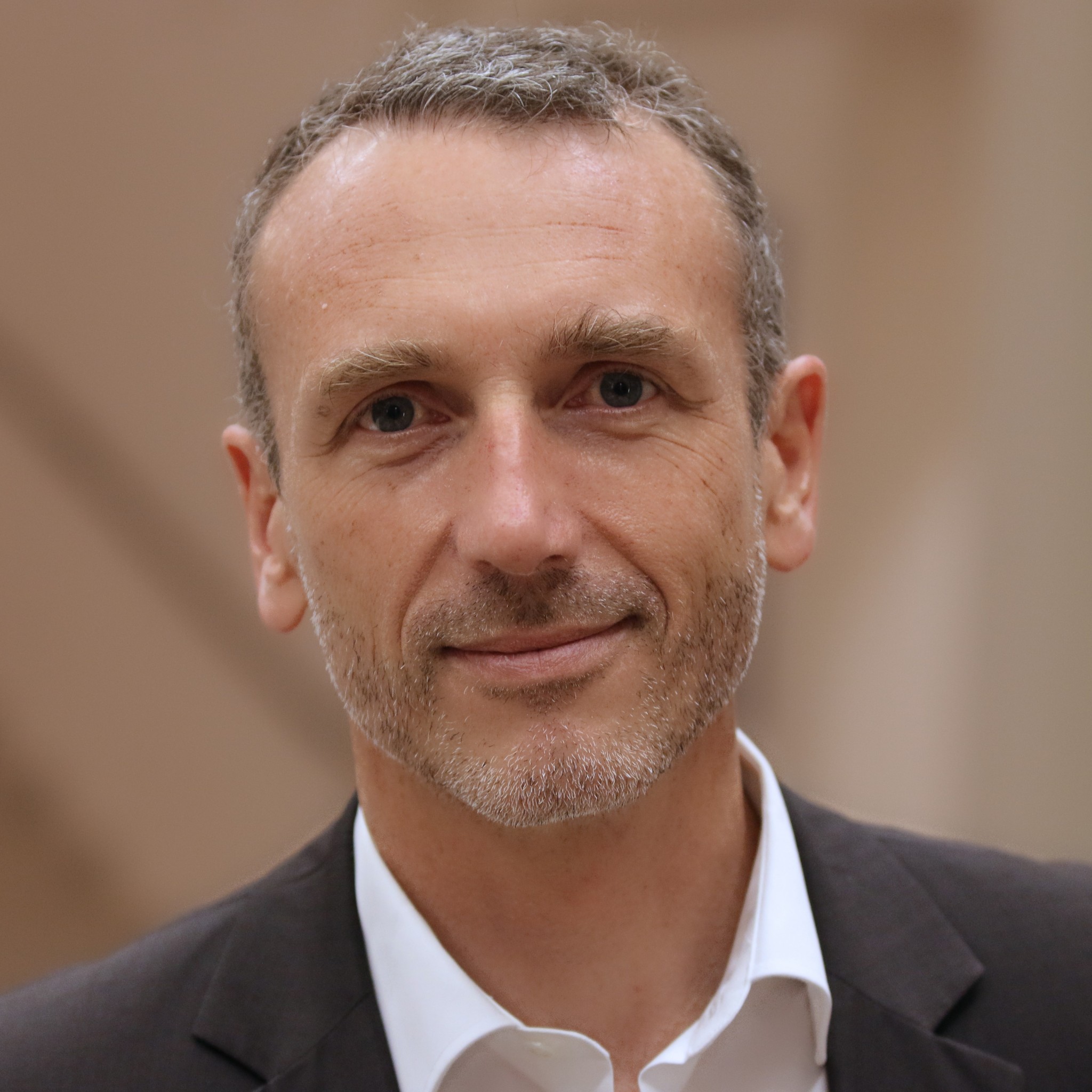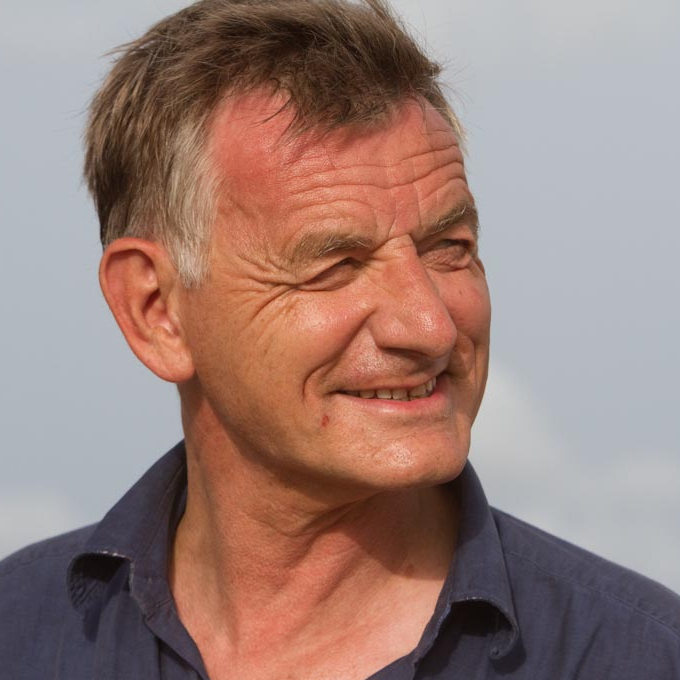The One Planet Summit will take place in Nairobi on March 14th during the United Nations Environment Assembly (ANUE). Launched in 2015 to mobilize private and public actors to achieve the Paris Agreement objectives on Climate, the Summit focuses on new types of coalitions and financing models to reach scale and impact. Co-Chaired by the French and Kenyan presidents, the One Planet Summit in Nairobi will gather key decision makers from governments, companies and civil society. It will focus on the contribution of land management and forests to climate change, an issue which is at the heart of the Livelihoods Funds mission.
As a contribution to the Summit, Emmanuel Faber, Chairman & CEO of Danone, and Bernard Giraud, President & Cofounder of Livelihoods Venture, share their views on land and food.

Emmanuel Faber is the Chairman & CEO of Danone, a leading global food & beverage company building on health-focused and fast-growing categories in three businesses: Essential Dairy and Plant-Based Products, Waters and Specialized Nutrition. Danone aims to inspire healthier and more sustainable eating and drinking practices, in line with its ‘One Planet. One Health’ vision which reflects a strong belief that the health of people and the health of the planet are interconnected.
Emmanuel is strongly committed to promoting innovative inclusive business models. In 2005, he supervised the first social business experiments conducted in Bangladesh with Grameen Bank and the creation of Danone Communities, in close collaboration with 2006 Nobel Peace Prize-Winner Muhammad Yunus. In 2013, upon the request of the French Government, Emmanuel co-wrote with Jay Naidoo the report “Innovating by mobilizing stakeholders: 10 proposals for a new approach to Official Development Assistance”.
Emmanuel is also the Chairman of the Board of the Livelihoods Fund for Family Farming.

Bernard Giraud is the President and Cofounder of Livelihoods Venture, the social business that advises two investment funds – the Livelihoods Carbon Fund and the Livelihoods Fund for Family Farming- for 12 major private companies[1]. Livelihoods Funds supports large scale projects which generate long term revenue and food security to the population, creates public goods (water savings, CO2 sequestration…) for society as a whole and provides sustainable sourcing and high-quality carbon credits to the partner companies. Projects are implemented at landscape level with public-private coalitions (public institutions, NGOs, private companies…) to simultaneously address poverty, environmental degradation and climate change. Returns to the funds are result-based to guarantee a tangible social, economic and environmental impact.
[1] Danone, Mars, Firmenich, Veolia, Schneider Electric, Crédit Agricole S.A., Michelin, Hermès, SAP, CDC Climat, La Poste, Voyageurs du Monde.
Livelihoods Venture: Emmanuel Faber, you have expressed notable opinions on what you call the Food Revolution. The One Planet Summit will debate on land, biodiversity and forests in relation to development. What will be your contribution as a business leader and the CEO of a large food company?
Emmanuel Faber: My conviction is that the food system which we live with is out of breath. We need a Food Revolution, as we have called it at Danone, to provide 9 billion humans with healthy food while preserving and even restoring the natural capital in the coming years. We need to reconnect, resynchronize the food chain. Food standardization, where consumption is disconnected from natural biorhythms has led to an unprecedented stress on our ecosystems, water resources, soil fertility, biodiversity and ultimately on our food security. Business has a major role to play. This is why our company has redefined its vision as “One Planet One Health” and is engaged in a deep transformation process. We are reinventing our business, our relationship with farmers and our partners to provide food that respects the people and the environment. I am convinced that brands and companies that will last are those with a purpose that goes beyond financial return. Without social justice, there is no way we can create an economy that will tackle the collective challenges of today: inequalities, health, migrations, climate.
“The food system which we live with is out of breath.
We need a Food Revolution to provide 9 billion humans with healthy food while preserving and even restoring the natural capital in the coming years.”
Emmanuel Faber, Chairman & CEO of Danone
L.V.: Bernard Giraud, Livelihoods Funds invests in large scale projects with thousands of smallholder farmers. What kind of farming models do you encourage to meet food and natural capital preservation needs?
Bernard Giraud: Healthy soils and biodiversity are the foundation of healthy food and food security. This is why the Livelihoods Funds promotes farming practices that are both productive and ecologically viable. For example, in Kenya where the One Planet Summit takes place, Livelihoods Funds is investing in 30,000 family farms, with 1 to 2 ha, that had very low milk and food production. We are partnering with Brookside, a Kenyan dairy company, and Vi Agroforestry, an NGO that has been working for decades with smallholder farmers. We are investing in a low-cost agronomic model that contributes to restore soil fertility and water resources while enabling the farmers to very significantly increase their production and their income. By empowering them with these practices and efficiently connecting them to markets with Brookside, the project is improving the lives of the farmers and offering new prospects to young generations. This low-carbon model is an example of ecological intensification at scale that also maximizes employment in a densely populated area.
“Healthy soils and biodiversity are the foundation of healthy food and food security. Livelihoods Funds promotes farming practices that are both productive and ecologically viable.”
Bernard Giraud, President & Cofounder of Livelihoods Venture
L.V.: Emmanuel Faber, what are you doing to accelerate the transformation of your business and reach scale? What will be your key messages at the One Planet Summit?
E.F.: One of my key messages will be that we need to invest in an agriculture that not only protects but also regenerates the natural cycles and enables farmers, in particular smallholders, to earn a decent living from their work. It is urgent to accelerate the transformation of a system that has been built on simplification, massification and maximization of farm inputs over the past decades. This is increasingly understood by the general public which expresses its aspiration through the rapid changes in food consumption. Serious research and modelizations conducted by organizations such as IDDRI, FAO and Uppsala University demonstrate that agro-ecological models can meet the food needs with relocalization and a wise use of natural resources. Biodiversity is degrading rapidly, and governments, corporations, financial institutions and civil society have to quickly move from peripheral action to mainstream. Biodiversity should be at the same level of priority as climate change. Protecting and enhancing it before it is too late is a generation’s duty.
“Public development aid or agricultural subsidies could be used to de-risk investments and incentivize social and ecological value creation.”
Emmanuel Faber, Chairman & CEO of Danone
L.V: Bernard Giraud, through your practical experience with the Livelihoods Funds, what are the main obstacles and the growth levers to the acceleration of this transformation?
B.G.: It is widely understood today that a silo approach cannot solve such complex issues and reach impact at scale. Joining forces between the private and public sector, between NGOs and research is not an option. It is an urgent need that is increasingly shared by the key actors. But we have to put it into action. And, for that, all stakeholders should make a deep transformation of the way they operate to reach scale and impact. Businesses have to foster major changes in their sourcing models and invest in agriculture to reach real sustainability. Private investors need to accept longer terms and reasonable return from investments that generate public externalities that will be increasingly monetized. Public financial institutions and development agencies have to rethink their principles, processes, financial tools and ways of working to take more risks and move private-public partnerships and hybrid financing schemes from exception to common practice. More investment should move from processing to farming. More time should be allocated. 2-3 year programs do not make any sense for transforming agriculture. NGOs effort to reach impact and scale should be encouraged through result-based payments and longer-term funding.
“Two-three year programs do not make any sense to transform agriculture.
More time should be allocated.”
Bernard Giraud, President & Cofounder of Livelihoods Venture
L.V.: Emmanuel Faber, what should be the role of the private sector?
E.F.: The private sector should invest in projects that support farmers in their transition to regenerative agriculture. The impact of these projects should go far beyond only economic benefits and generate measurable social and environmental impacts with the support of NGOs. And the public sector could join in to scale-up the impact of these projects. For example, public development aid or agricultural subsidies could be used to de-risk investments and incentivize social and ecological value creation. Payments from the public sector could be on a result-based mechanism to link financing, quality of project implementation and measured achievements to create a virtuous circle. This would create more favorable conditions for private investment and accelerate the Food Revolution. We also need very concrete, action and result-oriented coalitions. General coalitions on a global scale to engage industry sectors and stakeholders on pledges and commitments are necessary. It is more difficult to have a few companies and partners signing concrete and practical commitments with precise objectives. This has to be clearly encouraged by all means from governments and international institutions. The move is on. We need to catalyze it. 2019 and 2020 offer a unique opportunity to make a collective shift with major top-level events from the G7 presided over by France to the Biodiversity Conference of Parties in Beijing, etc. Let’s make the most of it.


